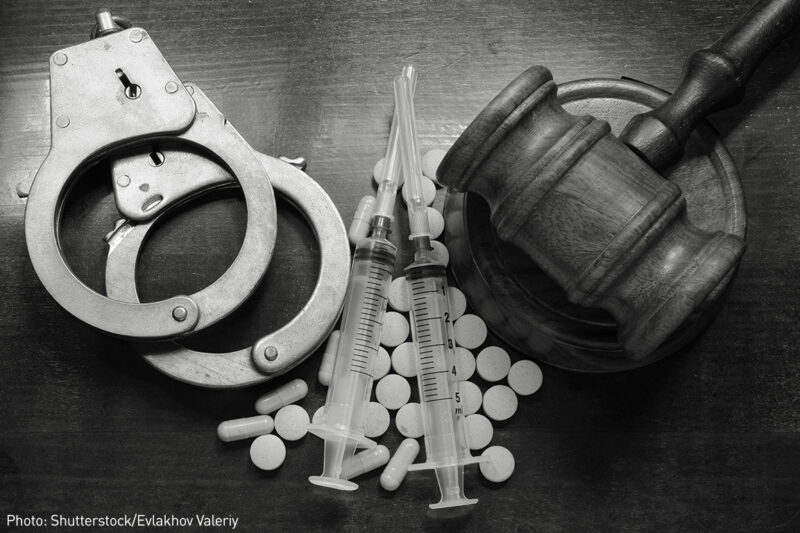
As anyone familiar with our criminal justice system can tell you, it’s too big, too harsh, and too frequently making matters worse rather than better for the people involved and their friends, family, and neighbors. Researchers, advocates, and policymakers dedicated to solving these problems spend months and years analyzing specific circumstances in specific jurisdictions to determine the best, most effective policy changes to make improvements. But to what end? Sometimes the questions are complex, like, how do we prevent violence and respond more effectively when it happens? But sometimes the issue is simple and straightforward.
One of those simple issues is drug possession.
No one should go to prison for drug possession. We don’t jail people for drinking alcohol, even if they become alcoholics. Further, no one should bear the lifelong consequences of a felony record for drug possession. Felony records erect unnecessary barriers to housing, education, and employment, which are all essentials for stability, and stability is essential to recovery. Home, school, and work all build community. And connection with community is the antidote to the isolation of addiction.
Additionally, felonies can take away people’s right to vote, the hallmark of civic engagement and equal standing in society. When we take away someone’s right to vote, we relegate them to second-class citizenship and push them further away from full participation in the life of a community. Even if a felony conviction does not result in a jail or prison sentence, it is a scarlet letter that will forever exert a destabilizing, marginalizing, and oppressive force in a person’s life.
Eighty-seven percent of Americans believe people struggling with drug addiction don’t belong in prison. They believe these individuals belong in treatment instead. And yet, despite this overwhelming consensus that the response to drug use should be grounded in health policy, not punishment, simple possession of drugs remains a felony in a majority of states. States like Texas, Louisiana, and Alabama, but also Illinois, Ohio, and Washington all have laws on the books that felonize minor drug possession.
But the tide is changing.
This year, the legislatures of three states — one red, two blue — reclassified the simple possession of drugs from a felony to a misdemeanor. Utah, Connecticut, and Maine all joined California, whose voters passed Proposition 47 last year by a 60-40 percent margin, as the first four states in recent memory to take this important step away from the “War on Drugs” prohibitionist paradigm and toward a smarter health-based approach. While a small group of states have treated some or all drug possession as a misdemeanor for years, the legislators and voters in these four states are the first to make this important course correction since the “tough on crime” era of the ’80s and ’90s, which saw our prison population rise by over 400 percent.
Strong communities are safe communities. A smart justice system operates with that principle in mind, investing in the recovery, not punishment, of families touched by drug-related problems. The bipartisan alliance of legislators and governors who supported the reforms in Utah, Connecticut, and Maine understood that scaling back harsh criminal sanctions and limiting the unnecessary burdens they place on individuals and families is a step toward stronger, safer communities in these states.
In the coming year, other states like Ohio and Illinois will be engaging in comprehensive, top-to-bottom reviews of their entire criminal justice codes and systems. We urge policymakers, legislators, advocates, and impacted community members to take a hard look at drug possession laws and push to keep this momentum moving in the right direction – toward a better, smarter justice system that lets health issues be treated like health issues, not crimes.



